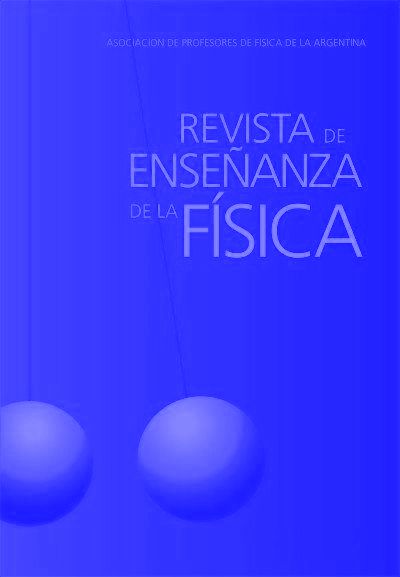Video games in the physics classroom: implementation and assessment of the use of Portal to approach two- dimensional motion
DOI:
https://doi.org/10.55767/2451.6007.v36.n.47235Keywords:
Physics, Productive disciplinary engagement, Video games, PortalAbstract
The world of video games, which captivates millions, has become a powerful tool in the physics classroom. This work presents part of a doctoral research study on the construction of conceptual knowledge using the video game Portal. It describes the implementation process of the video game, from levels’ design towards its integration into a university physics course. Throughout a two-class teaching learning sequence, it is observed how a group of engineering students progress from a scalar conception to a vector interpretation of velocity in two dimensional motion. The students achieved the expected learning goals, and the records obtained allowed for a detailed description of the learning process with Portal
References
Buteler, L., Nieva, C. y Velasco, J. (2021). La apropiación de la enseñanza y el aprendizaje de futuros docentes durante el curso de Didáctica de la física. Revista Eureka sobre enseñanza y divulgación de las Ciencias, 3(18), 3601. doi: http://doi.org/10.25267/Rev_Eureka_ensen_divulg_cienc.2021.v18.i3.3601
Catelli, M. (20 de marzo de 2022). Teaching With Portal 2: Spatial Thinking & Critical Analysis. TeachThought https://www.teachthought.com/critical-thinking/ideas-resources-for-teaching-with-portal-2
Chen, P. Y., Hwang, G. J. y Yeh, S. Y. (2022). Three decades of game-based learning in science and mathematics education: an integrated bibliometric analysis and systematic review. Journal of Computers in Education, 9, 455-476. doi: https://doi.org/10.1007/s40692-021-00210-y
Engle, R. y Conant, F. (2002). Guiding Principles for Fostering Productive Disciplinary Engagement: Explaining Emergent Argument in a Community of Learners Classroom. Cognition and Instruction, 20(4), 399-483. doi: https://doi.org/10.1207/S1532690XCI2004_1
Escobar, M. R. (26 de julio de 2022). Niveles de Portal creados. Steam Community. https://steamcommunity.com/workshop/filedetails/?id=2796729681
Escobar, M. R. (2023). Aprendizaje mediado por videojuegos: la potencialidad de Portal para el estudio del movimiento en el plano [Tesis doctoral]. Universidad Nacional del Centro de la Provincia de Buenos Aires. doi: https://doi.org/10.52278/3962
Escobar, M. R. (8 de julio de 2024). Level 1 - Gravity 600.mp4. [Media]. Figshare. doi: https://doi.org/10.6084/m9.figshare.26206865
Escobar, M. R. y Buteler, L. M. (2018). Resultados de la investigación actual sobre el aprendizaje con videojuegos. Revista de Enseñanza de la Física, 30(1), 25-48. doi: https://doi.org/10.55767/2451.6007.v30.n1.20317
Escobar, M. R. y Buteler, L. M. (2022). Videojuegos y conocimiento intuitivo: la potencialidad de Portal para aprender física. Revista electrónica de investigación en educación en ciencias, 17(2), 59-72. doi: https://doi.org/10.54343/reiec.v17i2.330
Escobar, M. R. y Buteler, L. M. (2023). Aprendizaje conceptual del movimiento en el plano con el videojuego Portal. Revista de Enseñanza de la física, 35, 107-114. Recuperado de https://revistas.unc.edu.ar/index.php/revistaEF/article/view/43284
Foundry 10. (s.f.). Teach with Portal 2. Recuperado de https://www.foundry10.org/resources/portal2
Herrenkohl, L. R., Palincsar, A. S., DeWater, L. S. y Kawasaki, K. (1999). Developing scientific communities in classrooms: A sociocognitive approach. Journal of the Learning Sciences, 8(3-4), 451-493. doi: https://doi.org/10.1080/10508406.1999.9672076
Hussein, M. H., Ow, S. H. y Elaish, M. M. (2022). Digital game-based learning in K-12 mathematics education: a systematic literature review. Education and Information Technologies, 27, 2859-2891. doi: https://doi.org/10.1007/s10639-021-10721-x
LaBonte, D. (9 de septiembre de 2014). Game-Based STEM Instruction. Edutopia. https://www.edutopia.org/blog/reinventing-science-fair-portal-2-don-labonte
Reznitskaya, A. y Gregory, M. (2013). Student thought and classroom language: Examining the mechanisms of change in dialogic teaching. Educational Psychologist, 48(2), 114-133. doi: https://doi.org/10.1080/00461520.2013.775898
Schiesel, S. (10 de mayo de 2011). Portal 2, a Video Brain Game - Review. The New York Times. https://www.nytimes.com/2011/05/11/arts/video-games/portal-2-a-video-brain-game-review.html
Valve. (27 de abril de 2012). Portal 2 Perpetual Testing Initiative [Video]. YouTube. https://www.youtube.com/watch?v=b7rZO2ACP3A
Velasco, N. y Buteler, L. M. (2023). Implicación productiva en la disciplina sobre circuitos eléctricos utilizando Investigación Basada en el Diseño. Revista Eureka sobre Enseñanza y Divulgación de las Ciencias, 20(2), 280208. doi: https://doi.org/10.25267/Rev_Eureka_ensen_divulg_cienc.2023.v20.i2.2802
Vygotsky, L. S. (1978). Mind in Society: Development of Higher Psychological Processes (M. Cole, V. Jolm-Steiner, S. Scribner y E. Souberman, Eds.). USA: Harvard University Press.
Downloads
Published
Issue
Section
License

This work is licensed under a Creative Commons Attribution-NonCommercial-NoDerivatives 4.0 International License.
Aquellos autores/as que tengan publicaciones con esta revista, aceptan los términos siguientes:Los autores/as conservarán sus derechos de copiar y redistribuir el material, bajo los términos estipulados en la Licencia de reconocimiento, no comercial, sin obras derivadas de Creative Commons que permite a terceros compartir la obra bajo las siguientes condiciones:
- Reconocimiento — Debe reconocer adecuadamente la autoría, proporcionar un enlace a la licencia e indicar si se han realizado cambios. Puede hacerlo de cualquier manera razonable, pero no de una manera que sugiera que tiene el apoyo del licenciador o lo recibe por el uso que hace.
- NoComercial — No puede utilizar el material para una finalidad comercial.
- SinObraDerivada — Si remezcla, transforma o crea a partir del material, no puede difundir el material modificado.
- Los autores/as podrán adoptar otros acuerdos de licencia no exclusiva de distribución de la versión de la obra publicada (p. ej.: depositarla en un archivo telemático institucional o publicarla en un volumen monográfico) siempre que se indique la publicación inicial en esta revista.
- Se permite y recomienda a los autores/as difundir su obra a través de Internet (p. ej.: en archivos telemáticos institucionales o en su página web) antes y durante el proceso de envío, lo cual puede producir intercambios interesantes y aumentar las citas de la obra publicada. (Véase El efecto del acceso abierto).










